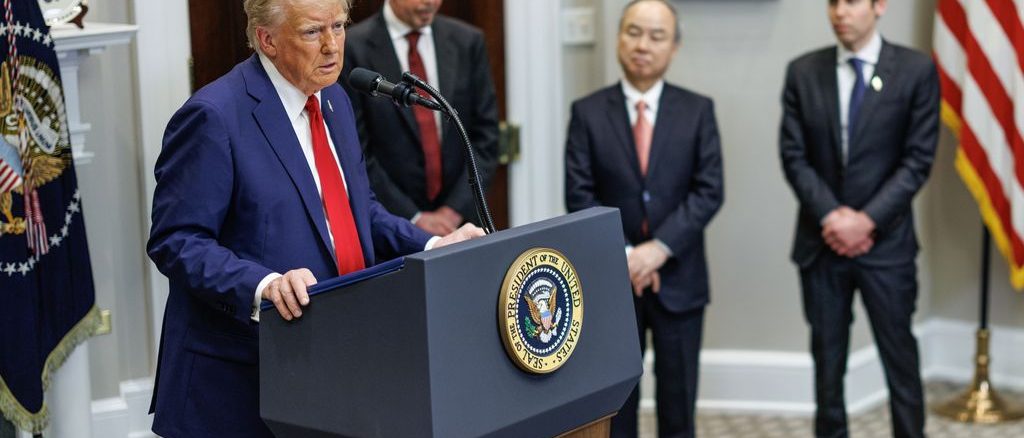
A hundred billion in AI in the US is not new, ‘Europe must respond smartly’
US$100 billion will be invested in the United States to further develop artificial intelligence (AI) applications, President Donald Trump announced last night On. A bizarrely high amount, but the announcement is not entirely new.
The billions of dollars will go to ‘AI infrastructure’: data centers and power plants to further develop applications with artificial intelligence. Creating AI applications, such as writing texts and navigation of self-driving cars, requires a lot of computing power, which must be made available in these types of data centers.
Trump announced the investment in the presence of executives from several initiators: software company Oracle, the Japanese investment fund SoftBank and OpenAI, the company behind ChatGPT. The investment should amount to $500 billion over the next four years. This is all done under the name of a new company: Stargate.
“Write that name down, because I think you’re going to hear a lot about it,” Trump said.
Not new
It seems like a new project, but the name Stargate has been mentioned before. Tech site The Information reported nine months ago that OpenAI has plans for a huge data center, including a supercomputer called Stargate. Cost according to the news site: 100 billion dollars.
It was also not the first time that Trump and the CEO of the Japanese investment company SoftBank stood next to each other. In December, both men announced that the company would invest $100 billion in America. Even then, Trump said that the money would go to artificial intelligence, although it was not yet clear how.
Last night’s announcement brings together OpenAI’s desire and SoftBank’s promise.
‘Biggest, strongest and most powerful’
It is logical that the US invests these amounts in artificial intelligence, says Tom Heskes, researcher at Radboud University. “The US says: we’ll just do it. They want to be the biggest, strongest and most powerful in the field of AI. This investment is part of that.”
“It is a gigantic announcement,” says Stijn Grove of the Dutch Data Center Association, the interest group for data centers in the Netherlands. “There are also some initiatives in Europe, but we are really talking about a different scale here. This really goes beyond everything.”
Europe invests 1.5 billion
The promised amounts of 100 to 500 billion in the US overshadow an investment for a comparable European initiative. Last month, Europe announced an amount of 1.5 billion euros for ‘AI factories’ in seven European countries: places where strong development in the field of artificial intelligence must take place.
Heskes and Grove agree that Europe must come up with a smart response to meet American competition. “We cannot say: they do 100 billion, so we also do 40 million,” says Heskes. “That makes no sense at all.”
Create specialist AI applications
According to the Radboud researcher, European ‘AI factories’ should be used to build specialist AI applications themselves, based on the preliminary work done in America.
“It takes a lot of computing power to build those large AI applications yourself. There are only a few in the world that can do that. But once that foundation has been laid, European researchers and companies can move forward.”
Specialist AI application
Fine-tuning of AI applications, for example, is already done by SpraakLab, a company from Nijmegen that converts conversations with the technology into written text. For example in home care. “After an employee has been to a patient, the employee records a report that is included in the file,” says founder Marijn Huijbregts.
“For this technology, we basically use an AI application created by the big boys. We then further fine-tune it ourselves. So that it works in Dutch and Frisian. But also so that commonly used words from healthcare be well recognised.”
“In this way, European companies have the opportunity to develop AI applications with which we can make a dent in a pack of butter,” says Heskes. “We have to work specialistly, focus on a certain niche, to be interesting. Then it is very worthwhile.”
“We don’t need very large factories with enormous capacity in Europe,” says Grove of the data center interest group. “You cannot win against this force of hundreds of billions, so we must respond smartly. China and America are fully committed to this. As Europe, we cannot wait.”

Be the first to comment